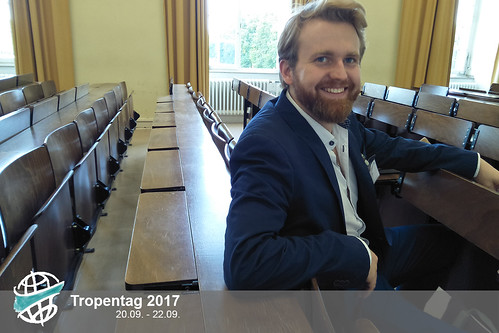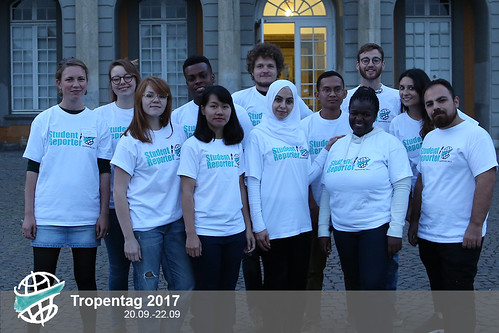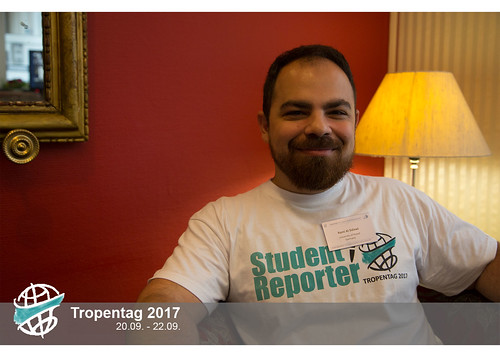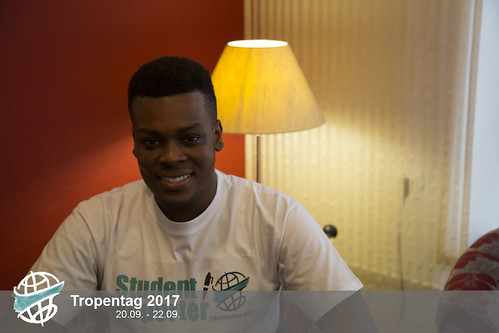lizkusia's blog
Malnutrition in Africa: Oh, the Irony!
Fri, 09/22/2017 - 12:05 — lizkusiaIt is 8:00 a.m. and I am already at the Agrobiodiversity and Nutrition diversity poster session. Today, I am doubling as a student reporter and a poster presenter. The room is filled with enthusiastic faces, hungry for information on the topic. The session started on high note with a presentation on potato farming in Peru. However, something caught my eye throughout the presentations. All the other topics, including mine were about Africa. One of the speakers swept me away with his research on biofortification of cassava. This is good news! However, allow me to talk about the other side of the story.
Dinner is Served...the Desert Locust!
Thu, 09/21/2017 - 18:06 — lizkusiaPhillip Straub, a first-time participant at Tropentag has developed a diet for the desert locust. The outstanding young German researcher submitted an abstract from his Bachelor’s degree thesis. He was overwhelmed after hearing he was selected for an oral presentation. To say the least, he was very excited. Philip is convinced that insects for food is the next big thing. “There are new developments every day, it is exciting,” he said. Philip won a GIZ scholarship to carry out his research project at the International Centre of Insect Physiology and Ecology (ICIPE), Kenya.

He sought to develop a storable diet for the desert locust that could be used for mass rearing. The desert locust is consumed by humans and can also be used as an animal feed supplement. He tested five different formulations for human food. They mainly consisted of powdered cowpea, cornmeal, soy bean and carrots in different ratios. Some were enriched with multivitamins. Two diets worked well. “My findings are a starting point for optimizing diets with a longer shelf-life for insects,” he explains.
Multinational team, same passion
Wed, 09/20/2017 - 12:24 — lizkusiaRami, video enthusiast!
Wed, 09/20/2017 - 10:33 — lizkusiaRami hails from Syria and he loves connecting with people. Rami is pursuing a PhD in Organic Agricultural Sciences at the University of Kassel, Witzenhausen, Germany. His passion for film led him to the position of student reporter at Tropentag 2017. This was his chance to shine. He would be able to capture on film current research affecting food security globally. So, he hopped on a train to get to Bonn and tell the Tropentag story. Otherwise, he hopes build networks at the conference and improve his overall skills as a science reporter.
Kofi, the charmer
Wed, 09/20/2017 - 10:29 — lizkusiaKofi is Ghanaian, and studying Sustainable International Agriculture with a main focus on International Agribusiness and Rural Development Economics at the University of Göttingen. He first learnt about the Tropentag from his University’s newsletter. As a student reporter, he wants to use his skills in social media, and photography, while learning more about blogging, video and photo editing as well as interview techniques from a journalistic point of view. He was excited at the prospect to both learn and then practice his skills at this year’s Tropentag. On Sunday, he got onto the train expecting an insightful and challenging experience, and above all, to have fun.







